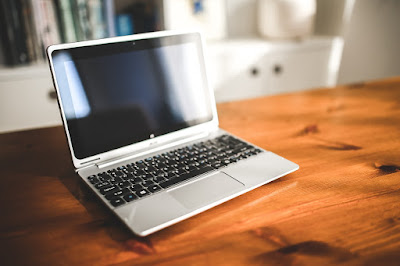Moreover, as print media and traditional approaches to education and training give way to new technology-based methods, it's more important than ever to obtain a basic level of proficiency using personal computers, tablets and smartphones to further the opportunity to improve health literacy.
What Basic Technical Skills Are Needed?
Here are some of the basic technical skills I believe are needed to become literate on any topic in today’s world.
Keyboarding
2. Navigate file folders, create new folders and storage location's
3. Download files to specific folders
Here's some lesson modules covering basic computer skills. And one other set of online courses that I recommend.
Here's some lesson modules covering basic computer skills. And one other set of online courses that I recommend.
Accessing, Reading and Creating Documents
Create, read, edit (when appropriate) and save documents in popular formats including:
1. Word processing (doc/docx file types. i.e. Microsoft Wor\
2. Spreadsheets (xls/xlsx file types. i.e. Microsoft Excel)
People largely need the ability to navigate around a spreadsheet and perhaps add data to a spreadsheet (or online form), not necessarily have the ability to create and format a spreadsheet
3. Presentations (ppt/pptx files types. i.e. Powerpoint)
The ability to view presentations is essential
4. Finished documents (PDF. i.e. Adobe PDF)
People will primarily need the capacity to read and save PDFs
1. Recognize, understand and use hyperlinks (aka URLs)
2. Recognize and use email addresses and various social media handles – like @ShimCode
3. Use a search engine (e.g., Google, Bing, or Yahoo)
Here are some online courses on navigating the internet that I recommend.
1. Via email
2. Via instant messaging or chat
3. Via web uploads
4. Commenting on blog posts and articles
5. Via social media accounts
More and more information is becoming available online in various, “rich formats” - often presented in an interactive way customized to specific end user needs. Nowadays, becoming more literate means being able to attend or participate in:
1. Webinars
2. Video conferences – live streamed and pre-recorded
3. Tweet Chats
The ability to view presentations is essential
4. Finished documents (PDF. i.e. Adobe PDF)
People will primarily need the capacity to read and save PDFs
Navigate Online (i.e. The Internet)
Navigating online and being able to access information is critical.
1. Recognize, understand and use hyperlinks (aka URLs)
2. Recognize and use email addresses and various social media handles – like @ShimCode
3. Use a search engine (e.g., Google, Bing, or Yahoo)
4. Bookmarking information
Here are some online courses on navigating the internet that I recommend.
Communicate & Share Online
Besides being able to navigate the internet, locate and access information, it's important to be able to share information with others. Here are some basic skills in this area:
1. Via email
2. Via instant messaging or chat
3. Via web uploads
4. Commenting on blog posts and articles
5. Via social media accounts
Participate in Online Activities
More and more information is becoming available online in various, “rich formats” - often presented in an interactive way customized to specific end user needs. Nowadays, becoming more literate means being able to attend or participate in:
1. Webinars
2. Video conferences – live streamed and pre-recorded
3. Tweet Chats
Here's some information on How to Participate in a Tweetchat.
What Else?
Health literacy and healthcare literacy are important. What other other skills, technical or otherwise - are needed to become health literate?
Check out this collection of articles, blog posts, tips and ideas about Health Literacy. Consider subscribing to this blog (See 'Subscribe via email" on right side of this page) and following me on Twitter where I share as @ShimCode.



No comments:
Post a Comment
Note: Only a member of this blog may post a comment.